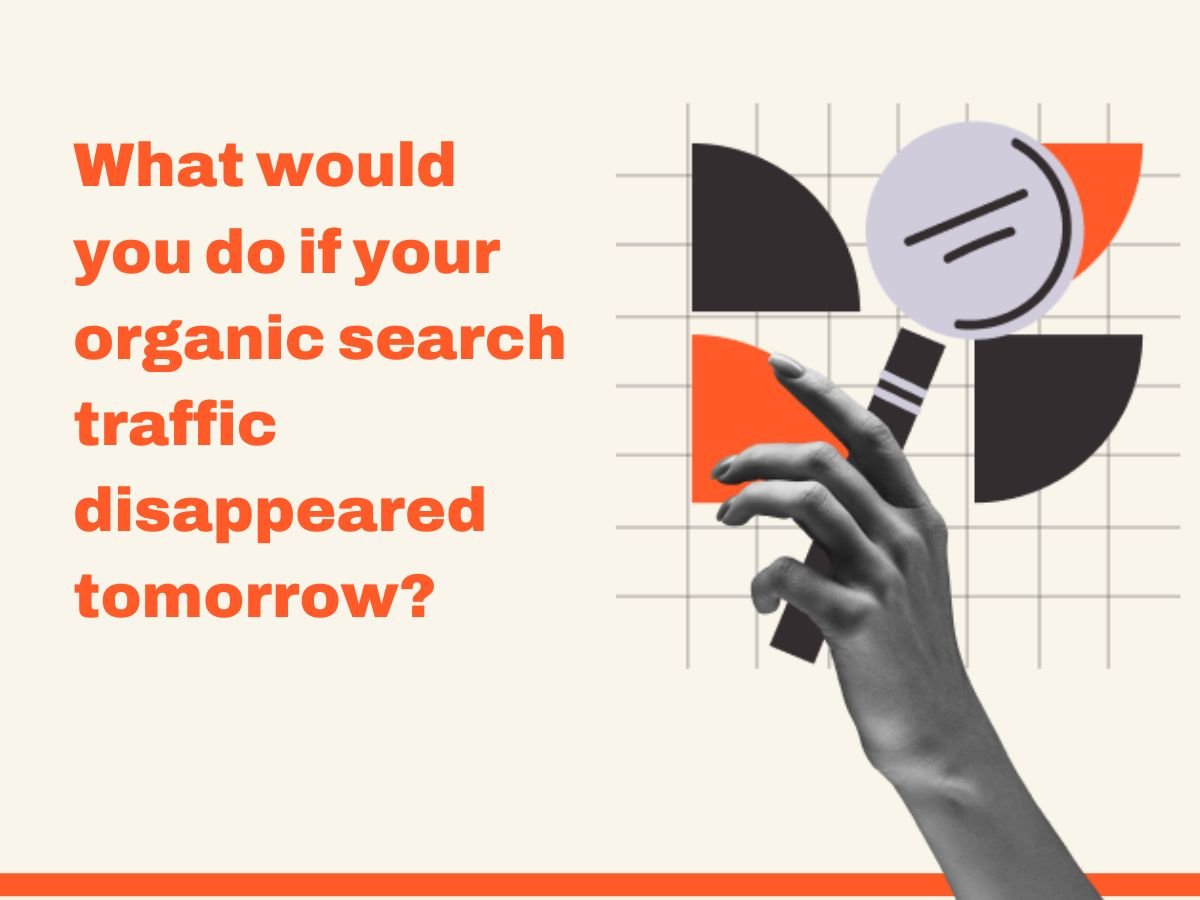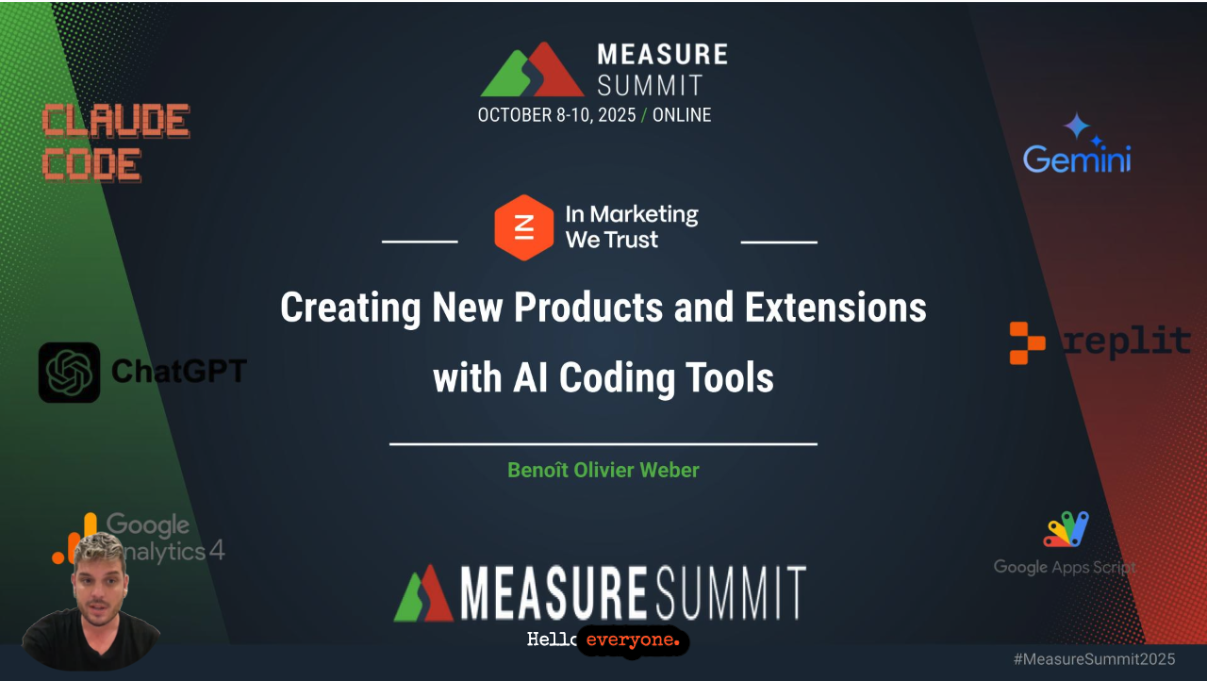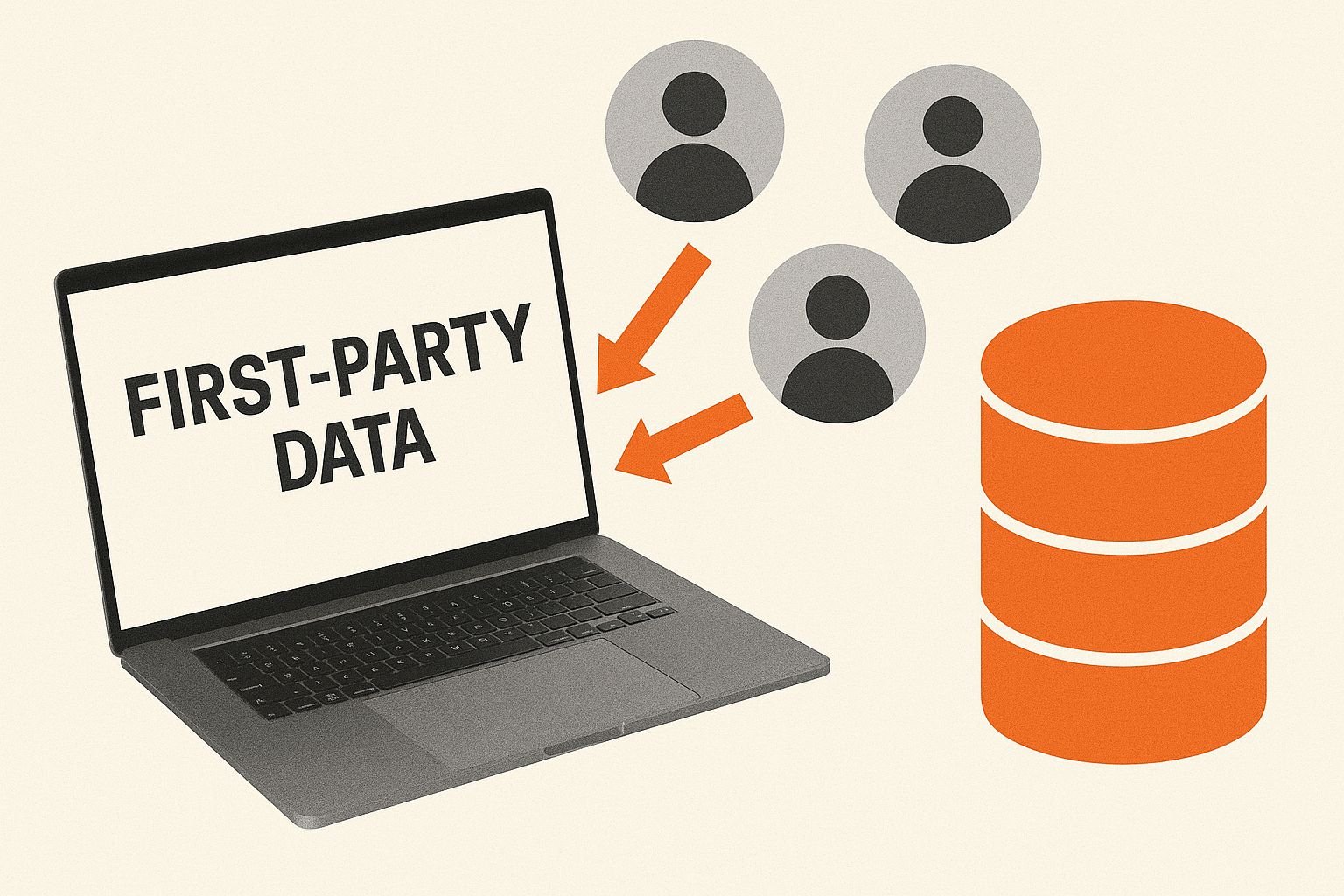With the announcements coming out of Google I/O, is it time to start panicking about organic search?
Your organic search traffic is at risk
While most organisations are aware that organic traffic is important, and some invest in improving their organic performance, few consider the risk they are exposed to via their reliance on organic search. We have entire departments dedicated to risk management, layers of lawyers and accountants protecting businesses. Yet, we don’t think of risk management when it comes to our organic search performance.
We’ve come to an inflection point. Technology is changing the essence of organic search in faster and more complicated ways than ever. If you don’t keep up with the changes, diminishing search performance will kill your revenue and even more critically, your profitability. Is your business asleep at the wheel when it comes to your exposure to massively diminishing organic search performance?
SEO is becoming less about improving performance and more about ensuring you’re set up with an organic search program that will safeguard your profitability and be able to roll with all the changes we don’t even know about yet. If you don’t, your exposure to volatile media markets will get worse, and again, may impact your profits.
Google I/O announcements impacting search
There were multiple big announcements made by Google at the annual Google I/O developer conference that will affect the future of search.
“AI Overviews” replacing traditional search results
One of the biggest announcements was the broad rollout of AI Overviews (formerly SGE or Search Generative Experience) in Google Search results, powered by Google’s advanced Gemini AI model.
These overviews provide detailed, multi-perspective answers to complex search queries, replacing the traditional 10 blue links. Google estimates this will reduce the presence of low-quality and unoriginal content in search results by 40%.
“Hundreds of millions of US searchers will gain access to AI overviews this week and over 1 billion by year’s end”.
Liz Reid, VP, Head of Google Search
While this is beginning in the US, it will continue to be tweaked and rolled out to the rest of the world. This means that what we see today could be very different to what eventually comes out in other regions. If you aren’t set up to deal with what it could look like then you will already be behind in a rapidly changing environment.
AI-Organized Search Results
Moving from being a search engine to an “answer engine” Google announced the rollout of “AI-Organized” search. This functionality will roll out for dining and recipes, followed by movies, music, books, hotels, shopping and more later this year directly in Google Search for U.S. English results.
“Google Search will use AI to group the search results into specific categories. This will help you brainstorm options for your query.”
Hema Budaraju, the Senior Director of Product, Search Generative Experience.
Multi-Stage Reasoning for complex questions
Google Search is now able to provide multistep reasoning using Gemini step-by-step reasoning logic.
“Rather than breaking your question into multiple searches, you can ask your most complex questions, with all the nuances and caveats you have in mind, all in one go.”
Liz Reid, Head of Search.
AI Assistant with Project Astra
Google also announced Project Astra and multiple AI Assistants across Google features and products. This highlights a future where zero-click searches rise and traffic declines.
Future proof your search traffic
So how can you future-proof your organic search traffic and your organic revenue? Instead of focusing solely on boosting performance, we need to start thinking about SEO in terms of risk management.
With the integration of AI Overviews in search, zero-clicks will rise and search activity is becoming more conversational with the adoption of AI.
At a business level, this evolution continues the degradation of organic search traffic volume. This degradation is expected to be most visible for informational and navigational types of queries (i.e. top/middle of the funnel keywords). This could lead to substantial drops in organic search traffic and revenue.
How to minimise risk
- Protect and maintain your top rankings: Minimise risk by ensuring you maintain your top ranking keywords. Your top 3 positions will continue to be extremely valuable and be the ones mostly used as part of the handful of citations included in AI summaries. We have also seen that the rest of the first page results can be referenced meaning you get a big boost from your quality content even on lower first page positions.
- Optimise your content for intent and customer journeys: Content creation should be closely related to search intent rather than keywords. Focus on owning your core topics covering what your customers expect from your business and services.
- Add more rich media: Focus on video and visual content as rich media may surface alongside text content in AI Overviews.
- Rewrite content: Rewrite your current content to align more closely with AI Overviews, providing concise, factual answers to queries.
- Focus on technical SEO: Ensure your website is up to date and you provide structured data for your content so that it’s easily interpretable by AI systems.
- Make sure your content is fresh: Maintain content freshness by regularly updating content and providing evergreen factual-based content.
Boosting performance via traditional SEO methods today simply to lose your organic traffic tomorrow will not help your business or your bottom line. Don’t take your organic search results for granted. Organic search is an essential piece of the marketing mix and will continue to deliver for years to come if managed the right way
Need help with your SEO risk management? Contact us for a free consultation today.













